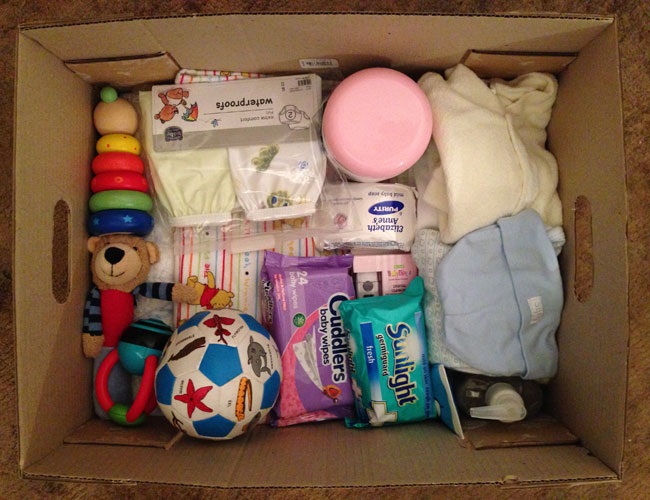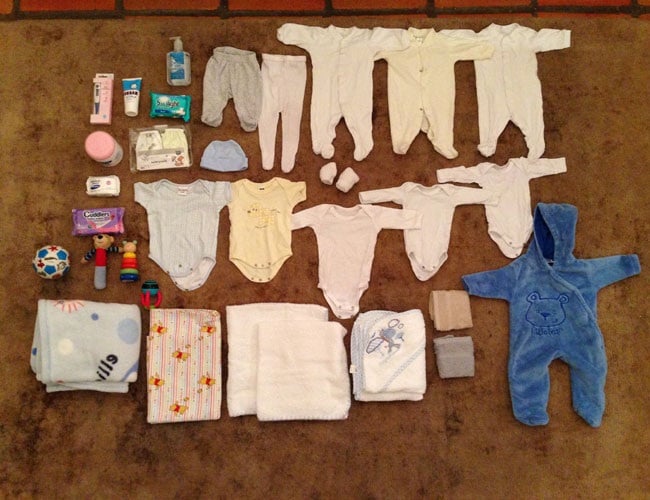
Two South African fathers, Ernst Hertzog and Frans de Villiers, have based the Thula Baba Box on a 1938 initiative that saw the Finnish government supplying expectant mothers with a box containing clothes, sheets and toys.
The box, which could be used as a cot, has been credited with helping to decrease Finland’s infant mortality rate from 65 deaths for each 1000 children born in 1938 to 3 deaths per 1000 births in 2013.
“We thought the Finnish box was an amazing example of design that changed a nation,’’ said Hertzog of Action Hero Ventures, an early-stage angel fund that invests in creative and technology start-ups.
"We hope that, given some tweaks, our product will have just as much of an impact.’’
Within a year of Hertzog and marketing executive De Villiers designing a similar model for South African circumstances, their design was designated an official 2014 World Design Capital partner project.
The project has also received funding from the J-PAL Africa Incubation Fund to study its effects on maternal and infant health, along with health economists from the University of Stellenbosch.
The Thula Baba Box will include items such as clothes, medicine, developmental toys and literature for parents. In addition, it will give access to free health products, information and a system of rewards to encourage expectant mothers to visit antenatal clinics earlier and more frequently.


De Villiers said these interventions, which had been designed in partnership with Stellenbosch University, were crucial to improve infant and maternal wellness but should be based on data. “We are looking forward to seeing the impact of the study on lower income families in the Western Cape.
“Hopefully we’ll be able to supply new mothers throughout the Western Cape
with the Thula Baba Box by 2016, and all across South Africa by 2020.”
The Western Cape Government Health, Chief Director for Health Programmes, Dr Tracey Naledi says about the project: ''We find it encouraging that two fathers are proactively engaged in a collaborative initiative to improve the lives of both babies and mothers in the Western Cape.
"We encourage such initiatives that are particularly aimed to support the first 1000 days of life, and are excited to see the results of the study.'’
''We find it encouraging that two fathers are proactively engaged in a collaborative initiative to improve the lives of both babies and mothers in the Western Cape. We encourage such initiatives that are particularly aimed to support the first 1000 days of life, and are excited to see the results of the study.”
Speaking on behalf of the Stellenbosch University team of researchers involved in the project, Prof Ronelle Burger of the Department of Economics, commented,
“The initiative not only distributes products and information but also offers incentives to change behaviour. It therefore has great potential for improving the lives of mothers and babies.
"Similar schemes have been successful in promoting health in other countries and we that this study will provide useful inputs for policy making, but also contribute to ongoing international research on the role that incentives can play in promoting better health choices.’’
Follow Women24 on Twitter and like us on Facebook.
The box, which could be used as a cot, has been credited with helping to decrease Finland’s infant mortality rate from 65 deaths for each 1000 children born in 1938 to 3 deaths per 1000 births in 2013.
“We thought the Finnish box was an amazing example of design that changed a nation,’’ said Hertzog of Action Hero Ventures, an early-stage angel fund that invests in creative and technology start-ups.
"We hope that, given some tweaks, our product will have just as much of an impact.’’
Within a year of Hertzog and marketing executive De Villiers designing a similar model for South African circumstances, their design was designated an official 2014 World Design Capital partner project.
The project has also received funding from the J-PAL Africa Incubation Fund to study its effects on maternal and infant health, along with health economists from the University of Stellenbosch.
The Thula Baba Box will include items such as clothes, medicine, developmental toys and literature for parents. In addition, it will give access to free health products, information and a system of rewards to encourage expectant mothers to visit antenatal clinics earlier and more frequently.


De Villiers said these interventions, which had been designed in partnership with Stellenbosch University, were crucial to improve infant and maternal wellness but should be based on data. “We are looking forward to seeing the impact of the study on lower income families in the Western Cape.
“Hopefully we’ll be able to supply new mothers throughout the Western Cape
with the Thula Baba Box by 2016, and all across South Africa by 2020.”
The Western Cape Government Health, Chief Director for Health Programmes, Dr Tracey Naledi says about the project: ''We find it encouraging that two fathers are proactively engaged in a collaborative initiative to improve the lives of both babies and mothers in the Western Cape.
"We encourage such initiatives that are particularly aimed to support the first 1000 days of life, and are excited to see the results of the study.'’
''We find it encouraging that two fathers are proactively engaged in a collaborative initiative to improve the lives of both babies and mothers in the Western Cape. We encourage such initiatives that are particularly aimed to support the first 1000 days of life, and are excited to see the results of the study.”
Speaking on behalf of the Stellenbosch University team of researchers involved in the project, Prof Ronelle Burger of the Department of Economics, commented,
“The initiative not only distributes products and information but also offers incentives to change behaviour. It therefore has great potential for improving the lives of mothers and babies.
"Similar schemes have been successful in promoting health in other countries and we that this study will provide useful inputs for policy making, but also contribute to ongoing international research on the role that incentives can play in promoting better health choices.’’
Follow Women24 on Twitter and like us on Facebook.




 Publications
Publications
 Partners
Partners









